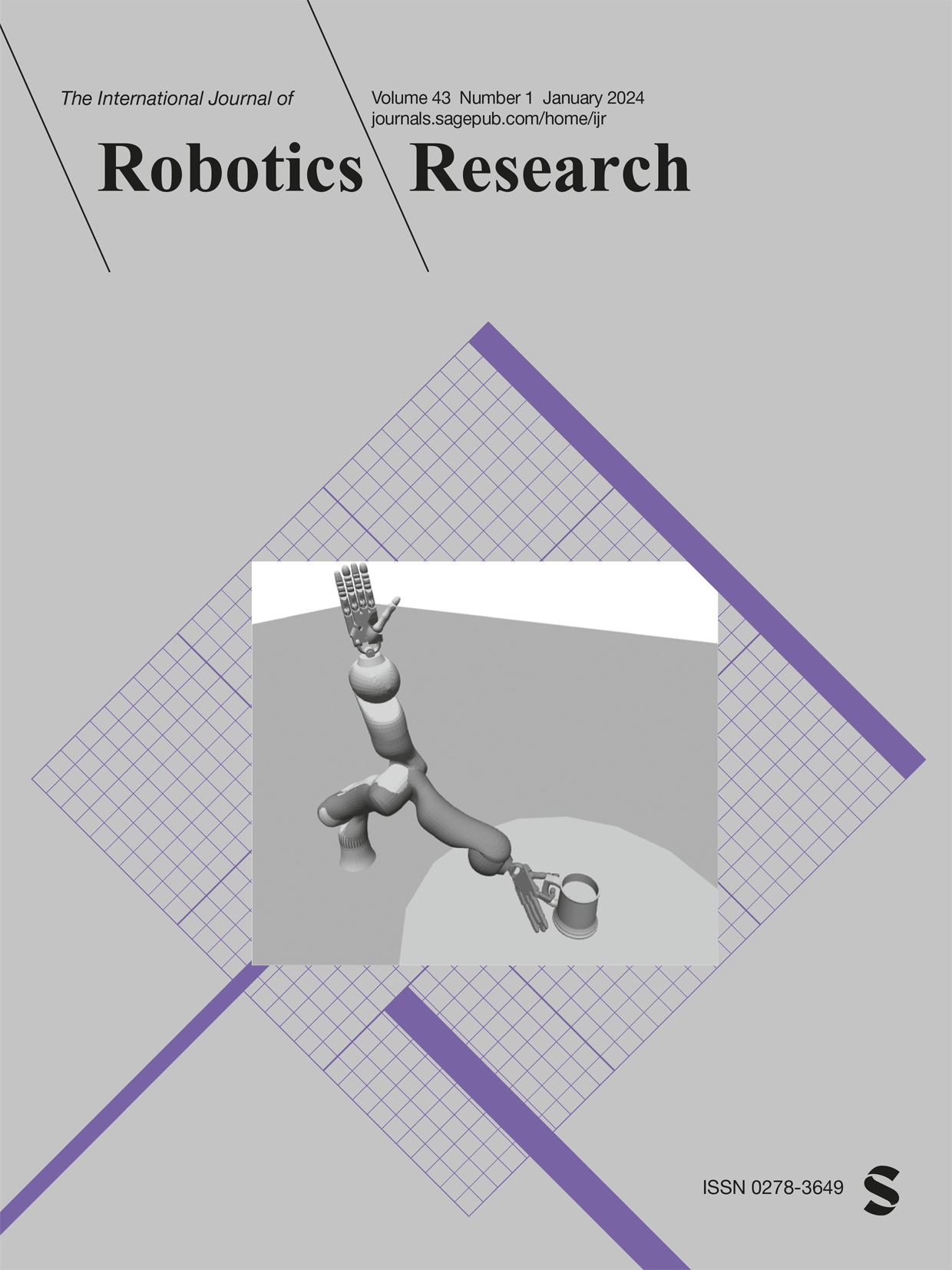从演示中进行监督贝叶斯规范推断
IF 5
1区 计算机科学
Q1 ROBOTICS
引用次数: 0
摘要
当观察任务演示时,人类学徒能够在获得实际执行任务的专业知识之前很久就识别出给定任务是否正确执行。先前对从演示中学习(LfD)的研究未能捕捉到任务执行的可接受性这一概念;同时,时态逻辑为表达任务规范提供了一种灵活的语言。受此启发,我们提出了贝叶斯规范推理,这是一种将任务规范推断为时间逻辑公式的概率模型。我们结合了概率编程的方法来定义我们的先验,以及一个独立于域的似然函数来实现基于抽样的推理。我们证明了我们的模型在推断规范方面的有效性,在推断的规范和基本事实之间观察到超过90%的相似性——无论是在合成域内还是在真实世界的表设置任务期间。本文章由计算机程序翻译,如有差异,请以英文原文为准。
Supervised Bayesian specification inference from demonstrations
When observing task demonstrations, human apprentices are able to identify whether a given task is executed correctly long before they gain expertise in actually performing that task. Prior research into learning from demonstrations (LfD) has failed to capture this notion of the acceptability of a task’s execution; meanwhile, temporal logics provide a flexible language for expressing task specifications. Inspired by this, we present Bayesian specification inference, a probabilistic model for inferring task specification as a temporal logic formula. We incorporate methods from probabilistic programming to define our priors, along with a domain-independent likelihood function to enable sampling-based inference. We demonstrate the efficacy of our model for inferring specifications, with over 90% similarity observed between the inferred specification and the ground truth—both within a synthetic domain and during a real-world table setting task.
求助全文
通过发布文献求助,成功后即可免费获取论文全文。
去求助
来源期刊
CiteScore
22.20
自引率
0.00%
发文量
34
审稿时长
6-12 weeks
期刊介绍:
The International Journal of Robotics Research (IJRR) has been a leading peer-reviewed publication in the field for over two decades. It holds the distinction of being the first scholarly journal dedicated to robotics research.
IJRR presents cutting-edge and thought-provoking original research papers, articles, and reviews that delve into groundbreaking trends, technical advancements, and theoretical developments in robotics. Renowned scholars and practitioners contribute to its content, offering their expertise and insights. This journal covers a wide range of topics, going beyond narrow technical advancements to encompass various aspects of robotics.
The primary aim of IJRR is to publish work that has lasting value for the scientific and technological advancement of the field. Only original, robust, and practical research that can serve as a foundation for further progress is considered for publication. The focus is on producing content that will remain valuable and relevant over time.
In summary, IJRR stands as a prestigious publication that drives innovation and knowledge in robotics research.

 求助内容:
求助内容: 应助结果提醒方式:
应助结果提醒方式:


